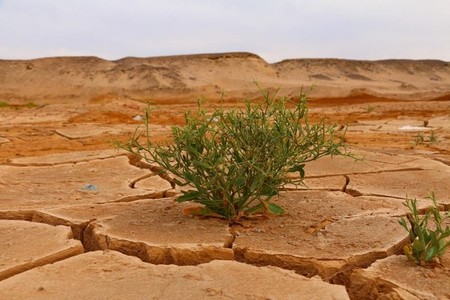Compensating the Catastrophe?
Critical Reflections on Voluntary Carbon Offsetting
01.04.2022
By Daniel Krähmer
Supervisor: Dr. Gesa Lüdecke
Think of the last time you booked a flight or a bus ride.
Did you come across a tiny little checkbox towards the end of your booking process? One that looked innocuous but promised to compensate all the emissions you were about to cause? What was the price for your “ecological sin,” and did you pay the extra fee?
I have come across such carbon compensation initiatives multiple times, and they always made me wonder: Can voluntary carbon offsets make a substantial contribution to tackling the climate crisis? Or are they yet another instance of greenwashing, numbing people into complacency instead of inspiring large-scale change?
With these questions in mind, I entered my final project. Little did I know that doing research on voluntary carbon offsets would not lead to clear answers but, instead, to a myriad of follow-up questions. In the end, I decided to split my research project into three parts.
In the first part, I examined the scientific rationale behind voluntary carbon offsetting. The idea of carbon offsetting is straightforward: While causing emissions in one place (i.e., by air travel), people pay to counteract their emissions somewhere else (i.e., by creating carbon sinks through reforestation). Externalizing the compensation of emissions to other agents and places rests on the fact that greenhouse gases are uniformly mixed pollutants, meaning that it is basically irrelevant where they are produced and reduced. This, however, leaves many important questions unanswered: Who receives the money customers pay? In what projects is it invested and how do those initiatives ensure carbon capture? Who safeguards diligent use of resources and prevents misappropriation?

Proceeding from such considerations, I turned to the Practical Feasibility of Voluntary Carbon Offsetting. How do offset providers even calculate the emissions caused by a certain product or service? (Conclusion: there is extreme variation in methodology and, thus, results.) And perhaps more importantly, how do providers ensure that compensatory measures are both permanent and go beyond “standard” practices?
In the third and final part of the project I turned to ethical and political questions surrounding voluntary carbon offsetting. Is voluntary carbon offsetting, as columnist George Monbiot prominently argued, nothing but a modern, ecological version of 16th century indulgence, i.e., purchasing heavenly redemption from the church? Or does it constitute a small yet sizeable action that people may take to acquire some sense of agency despite the immense magnitude of the climate problem?
Drawing on everything I have learned during my research on voluntary carbon offsets, I arrive at the following (somewhat unsatisfactory) conclusion:
“Everything in life has its price. So, too, does the way of living often referred to as "western" or "developed." Besides its dramatic social implications, the industrialized lifestyle of absurd abundance comes with a hefty ecological price tag. […] If we decide to compensate these costs economically, we should not lend ourselves to the illusion of having avoided any damage to the environment or, in fact, other people. If, however, we decide to ignore the little green checkbox popping up next time we book a flight or bus, we should remind ourselves that turning a blind eye to the problem will not solve it either.”


